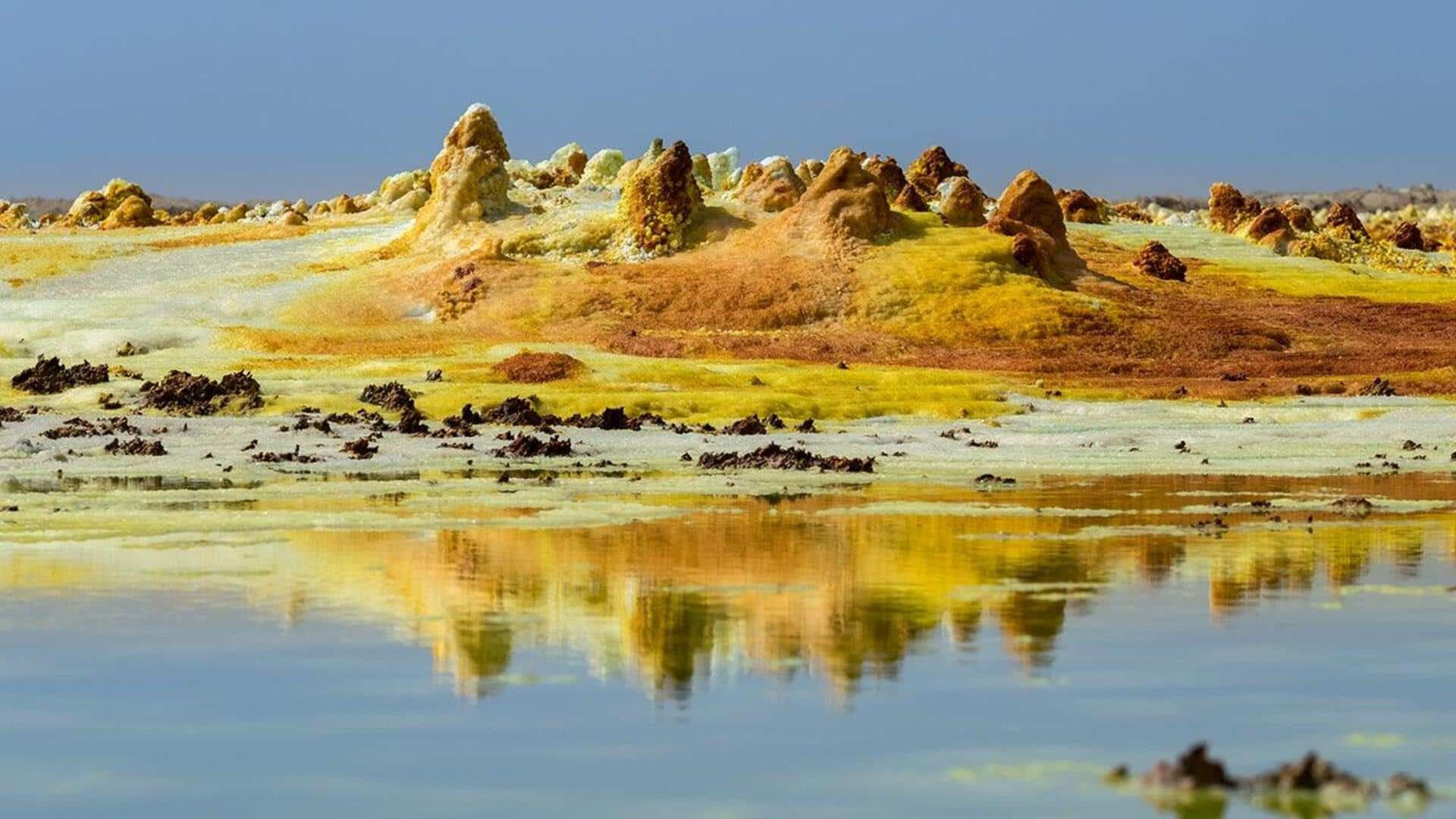
Exploring Ethiopia's salt mines
What's the story
Ethiopia's Danakil Depression hosts some of the world's most intriguing and least-known traditional salt mines. For hundreds of years, these mines have served as the lifeblood of the Afar people, who endure some of the planet's harshest conditions to harvest salt from the earth's crust. This article explores the extraordinary world of these mines, shedding light on their operation, cultural significance, and the incredible hardships faced by the miners.
Getting there
Journey to the heart of salt mining
Getting to the Danakil Depression is an adventure in itself - you'll need a 4x4 and an experienced guide. The trip from Mekele, the closest big city, is a two-day journey across some seriously rough roads. Be ready for a hot ride! Temperatures regularly reach over 50 degrees Celsius. But even with the heat, seeing the traditional salt mining in action is a once-in-a-lifetime experience.
Mining process
The traditional techniques unveiled
Salt mining in Danakil employs ancient methods, preserved through generations of hardworking miners. Miners use rudimentary tools like axes and iron bars to meticulously carve salt slabs from the earth. Each slab, weighing approximately six kilograms, demands precision and skill to extract intact. This arduous process, virtually unaltered for centuries, serves as a testament to human resilience and the preservation of tradition.
Community life
A glimpse into Afar culture
The Afar people are the heartbeat of salt mining in Danakil. Their entire community is built on this trade, with families uniting in the face of adversity to work together and provide for each other. The miners dwell in makeshift camps close to the mining areas during work cycles, reflecting a way of life profoundly connected to their environment and profession.
Safety tips
Navigating challenges
Travelers venturing into the salt mines should prioritize safety. Staying hydrated is key, and sun protection is a must. Wear loose, comfortable clothing and plenty of sunscreen to shield yourself from the intense heat. A local guide is highly recommended. Not only will they help you navigate the challenging terrain safely, but they'll also enhance your experience with their knowledge of local traditions and customs.
Cultural sensitivity
Respecting tradition
When visiting Danakil's salt mines, travelers should strive to be responsible and respectful of local customs and practices. Photography should be conducted discreetly or with explicit permission from miners or guides, to avoid causing discomfort or intrusion. Additionally, buying salt directly from miners can offer support, but it should be done ethically, without bargaining excessively over prices, which are generally very reasonable.